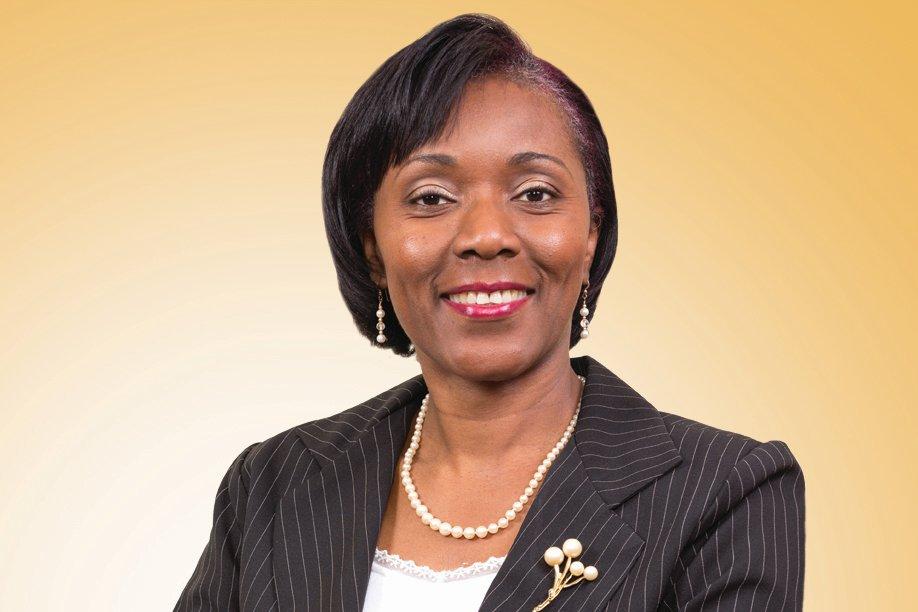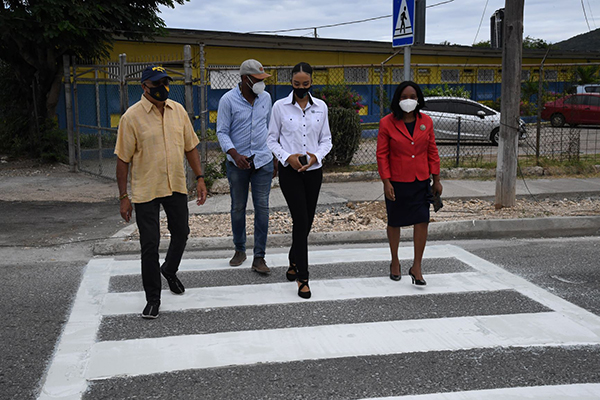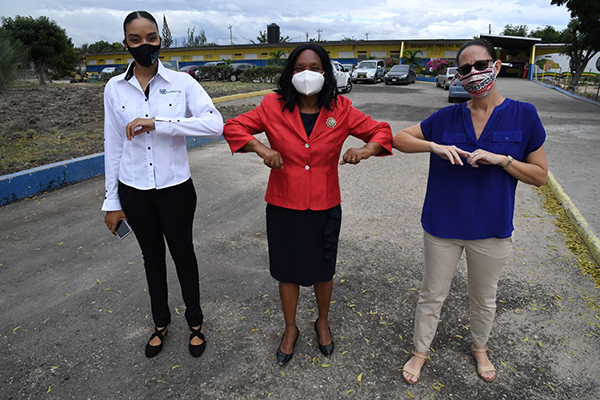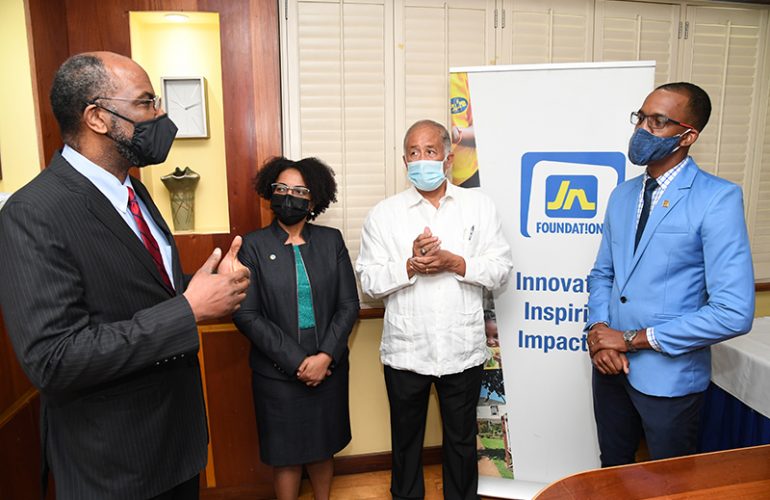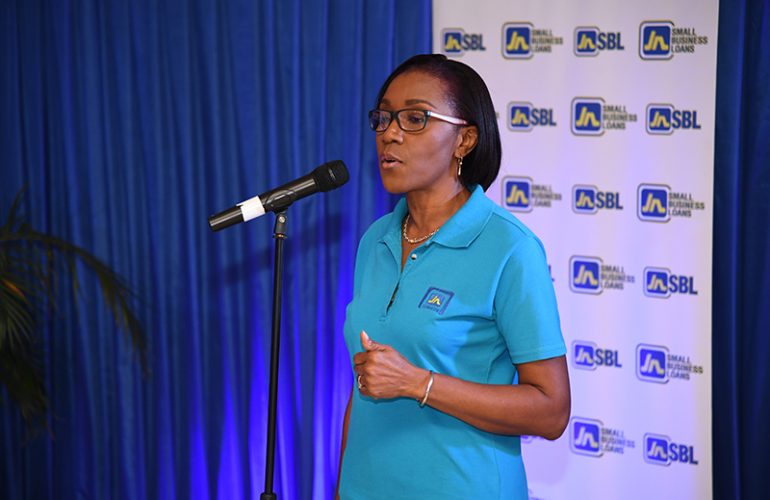JN Foundation Donates Rainwater Harvesting System and Water Efficiency Kits to the Wortley Home for Girls
Parris Lyew-Ayee (right), chairman of the JN Foundation presents water efficiency kits to Tanya Wildish (second left), director, Wortley Home for Girls. Sharing in the moment are Mary Allen-Smith (left), director of the JN Foundation and Delores Bailey, manager, Wortley Home for Girls. The home also received a rain water system at a handing over ceremony on World Water Day, March 22, at the home. The donation is in an effort to implement water adaptation measures and curb water usage within the home.
The JN Foundation, through its initiative, the Water Project Jamaica, has donated a rainwater harvesting system and 12 water-efficiency kits to the Wortley Home for Girls at a handing over ceremony on World Water Day, March 22, 2021, at the Home. This is in an effort to implement water adaptation measures and curb water usage within the Home.
Grappling with high water bills, the Wortley Home was established by the Anglican Diocese in 1918 to provide a home and a safe space for girls ages seven to eighteen. The institution was recently rebuilt following a fire in 2015, and now provides a loving environment and Christian upbringing for 14 girls, from a variety of backgrounds.
“In observance of this year’s World Water Day, we want to emphasize the value of water, whether in homes, schools or communities. And, we want to spread the message of water conservation and efficient water use as a part of valuing water. Our donation to the Home will increase its efficient use of water, and decrease the burden of high bills,” expressed Mr. Parris A. Lyew-Ayee, Chairman of the JN Foundation, who made the presentation of the items to the Home this week.
“Each water-efficiency kit includes a showerhead, aerators for the kitchen and bathroom sinks and a toilet leak detector. In addition, we handed over a rainwater harvesting system which will be installed by Instant-Save Conservation Solutions Jamaica Limited,” Mrs. Cornelia Walters-Jones, Project Manager, added.
Rainwater-harvesting systems capture rainwater by directing it from large surfaces, for example, roofs, to an underground or over-ground holding tank. The harvested rainwater is filtered and then pumped directly to the appliances or to a header tank. Domestic or commercial applications include flushing toilets. The Home will use its system to reduce water consumption primarily in the laundry area.
“Water means different things to different people, and we, at the Foundation, have started the conversation surrounding water conservation and what it means to adapt to water saving measures,” stated Mr. Lyew-Ayee. “Adapting means adjusting, and our aim is to influence the narrative that water is important to your home and family life, your livelihood, your cultural practices, your wellbeing, and your local environment, so it is up to you to value and preserve it the best way you can.”
The water project, which was started in 2017, is a joint collaboration with the JN Bank, the JN Foundation, the Climate Investment Funds (CIF), the Pilot Program for Climate Resilience (PPCR), the Inter-American Development Bank (IDB) and IDB Lab.
“The funding from our partners has allowed us to take on impactful and meaningful projects, such as this at the Wortley Home for Girls, as we aim to make a difference. We have also produced useful resources such as a water savings calculator; water adaptation guidelines for homeowners; offered training in water harvesting and carried out a 12 month-long household pilot study,” pointed out Mrs. Walters-Jones.
“A major shock to us at the Home came when the monthly water bill cost us over one hundred thousand dollars,” noted Mrs. Tanya Wildish, Director of the Home. “Most of that money we would have hoped to put into purchasing personal and educational items for the girls and fixing up the home.”
“With the installation of the devices, we are excited to see how much money we are able to save by cutting down our water usage,” added Mr. Keith Sangster, who is also a Director of the Wortley Home for Girls.
In addition to the installation of the devices, the visit to the Home featured a socially distant but interactive session with JN Ambassador, Agent Sasco and the girls, as well as a tour of the facility grounds.
To learn more about the Water Project Jamaica and its corporate philanthropy initiatives, please visit www.waterprojectja.com.




